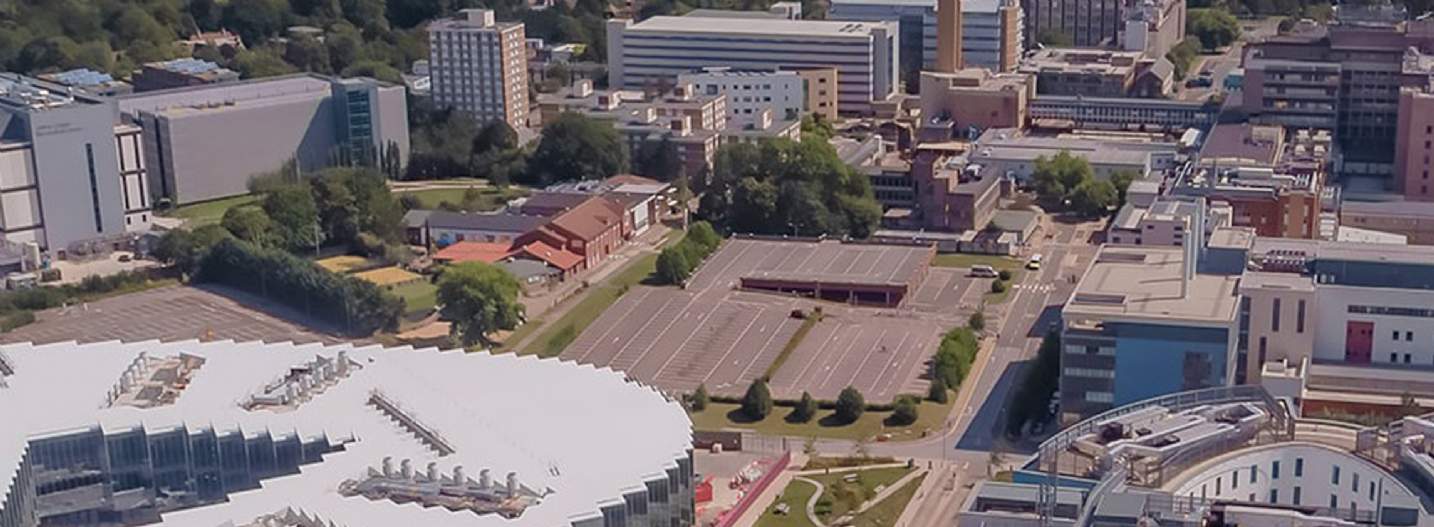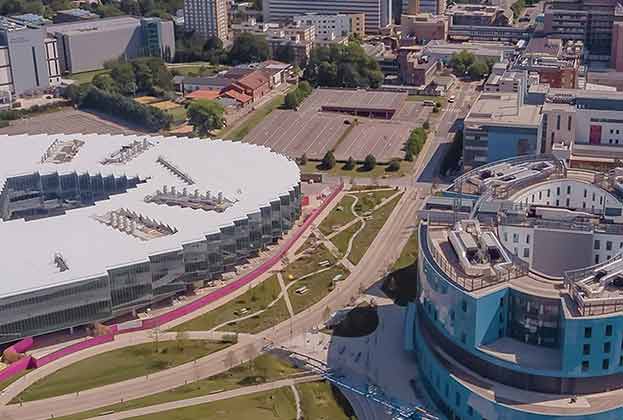Cambridge’s continued position as a world-leading centre of innovation relies on tackling infrastructure, commercial accessibility and housing affordability
Opportunity for growth
Cambridge sits at a potential turning point, with the Government recently announcing ambitions for residential and commercial development that would see the city grow faster than anywhere else in the country. Whilst accompanied by significant challenges around infrastructure delivery and sustainability, this level of development would represent a scale of opportunity not seen since the creation of the Milton Keynes Development Corporation in the 1960s.
The commercial market
The potential for growth is underpinned by Cambridge’s continued recognition and strength as a global leader in technology and life sciences. This is reflected in the performance of the commercial property market across the city. There was record demand for laboratory space in 2023 with 31,700 sq m transacted, which represented a 53% share of total office/laboratory take-up. This figure was 61% above the previous highest total recorded in 2019 of 19,800 sq m. A key deal of 2023 was BioNTech acquiring 6,970 sq m at Cambridge Biomedical Campus, underlining Cambridge’s global attraction and maturity as a market compared to Oxford and London.
Supply constraints continue to hinder the immediate expansion of both office and laboratory markets. The vacancy rate for available laboratory space is 1.5% across the city, leading to strong rental growth. Prime laboratory rents are in excess of £70 per sq ft (£753 per sq m). The office market is also experiencing a supply shortage with only one Grade A building over 2,000 sq m available in the city centre, which is already 50% pre-let. The demand for best-in-class office space has been evident at the 8,800 sq m One Cambridge Square which was speculatively developed by Brookgate and Schroders. The scheme completed in Q2 2023 and has secured lettings to Samsung and EY.
At the start of 2024, investment agents are seeing a higher degree of positivity in the market following a muted 2023
Emily Williams, Director, Residential Research
The current pipeline for office and lab space is 975,000 sq m, a potential net gain of 930,000 sq m of office and laboratory space. This would nearly double the existing stock in the city. Whilst it is unlikely that all of these schemes will be developed, the depth of the pipeline highlights the confidence in the market which is in contrast to the majority of other UK locations.
At the start of 2024, investment agents are seeing a higher degree of positivity in the market following a muted 2023. Investment volumes slumped in 2023 to just over £140m of sales, compared to record levels of over £900m of sales in 2021 and 2022. With the science sector attracting a wide occupier profile, vendors expect the market to improve in 2024, driven by wider economic and capital market improvements in the UK commercial investment market. If high-quality product comes to the market, buyers will appear.
.jpg)
Population and affordability changes
The strength of the employment market in Cambridge has had important knock-on effects on the make-up of the city. Between the last two censuses (2011 and 2021), the number of people living in the city increased by 17.6%, the largest rate of increase of anywhere in the East of England, and significantly above the England average of 6.6%. The largest percentage increase was in the 25-to-34-year-old age group (+20.6%), suggesting a strong pull factor from job opportunities generated by the University and other growing employers.
The proportion of households with children fell, and despite the overall increase in the population, the number of residents aged under four fell by just over 350. This suggests that Cambridge may be struggling to retain talent beyond the early career years, particularly at the stage when people are growing their families and need to look for larger properties. Affordability is an ongoing challenge for the city, with the average house price to income ratio increasing from 8.7 in 2011 to 12.4 in 2022.
The unaffordability of owner-occupation is also shown in the growth of the private rented sector. 31% of all households are now renting, compared to 26% in 2011. This is almost double the England average of 19%. Finding solutions to this affordability problem will be critical to Cambridge’s long-term potential to grow through attracting and retaining talent.
Oxford Economics’ forecasts for employment growth by 2050 is already constrained by assumptions relating to housing affordability. The forecast growth in total employment of 0.7% per year is less than half the rate (1.9%) between 2010–2021. The limiting factor is no expected overall growth in the working-age population by 2050, linked to an assumption based on current development trends and existing plans that only 26,000 new homes will be built by 2050. Clearly, the potential for economic growth under the Government’s newly announced ambition of 150,000 new homes would be substantially higher.
Residential market
Despite the headwinds in the market, residential values in Cambridge have remained resilient over the last year. Average transaction values in the city are now at £588,000, flat against the values achieved a year ago, according to Land Registry data. Falling mortgage costs in the first weeks of January are likely to bring more confidence to the market.
The city is holding up more strongly than South Cambridgeshire, where values have declined by just under 2% over the last six months. The strong employment market in Cambridge has supported values in Cambridge and the surrounding areas, with locations further from the city facing more challenges. A lack of stock on the market has also supported prices. Turnover in Cambridge in 2023 was just 1.8% of dwelling stock, lower than the UK average of 2.5%.
A lack of stock, coupled with high demand, has also defined the rental market. The number of listings in Q4 2023 in Cambridge was down by -23% against the 2017–19 average. Annual rental growth was over 8% from the start of 2022 to November 2023. However, in the last couple of months, the rate of rental growth has started to slow, suggesting that an affordability ceiling is being reached.
Read the articles within Spotlight: Good growth for Cambridge below.



